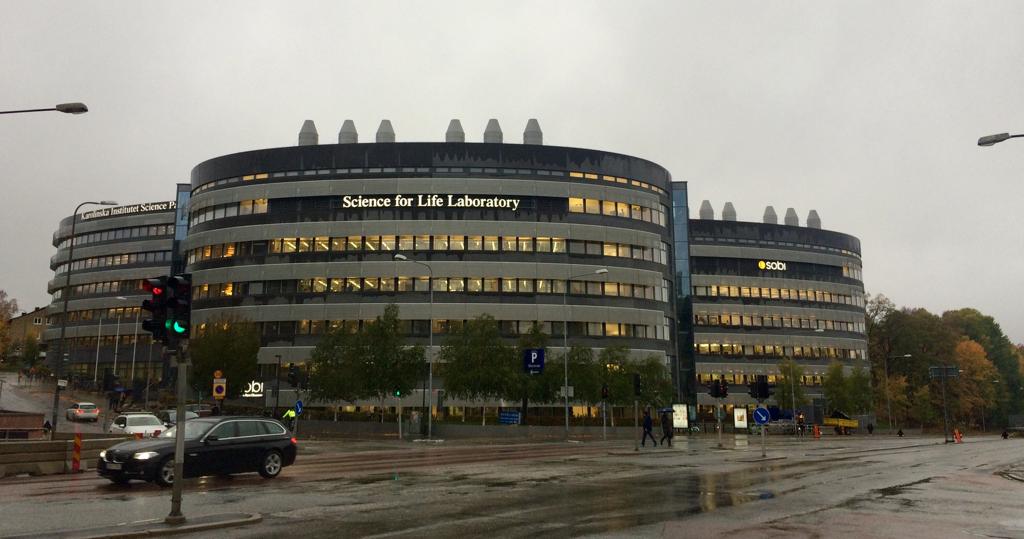How to get an individually-coached research experience during your Master’s
It’s not very common that the curriculum of a Master Programme includes the opportunity to perform a part-time internship, apart from the master´s thesis, in a cutting-edge research facility. If this does not sound good enough already, imagine accompanying it by a personalised coaching session to make the most out of your time there. Sounds like taken out of a fairy-tale, right? Well, this is exactly what happened during the elective course “Project in Molecular Life Science”, of the Molecular Techniques in Life Science Joint Master Programme.
My experience during the course
During this course I further developed my research skills and became better at research project planning. These two skills will be very important for my future, so I am very happy I decided to take this elective course. On top of that, I secured a master’s thesis project out of it 😀
It was, however, some very intense 10 weeks because on top of the research project we were very busy with the other elective course (Systems Biology or Drug Development), and since we all liked our projects very much we tried to put a lot of work into them. All of it together made it challenging to keep track of everything and to be sure to dedicate enough time to all tasks we had to do, but looking back at it now it was definitely worth it!
How does the Project course work?
The Project course has four components, of which the research project is the biggest one:
- Lectures
- Coaching sessions
- Research Project
- Assignments
Lectures: we had three lectures that covered topics in scientific communication and project planning. The lectures about scientific communication were not new for us, since we had already covered these topics in the Applied Communication course. Nevertheless, it is always nice to get insights from other scientists and listen to their opinions on how a good scientific presentation should be carried out. Regarding the planning lectures, these were newer for us and quite useful since we were introduced to many essential concepts in project planning such as deliverables and Gantt charts.
Coaching sessions: every two weeks we had an individual (or in pairs, if the project was performed by two students collaborating together) coaching session with the course responsible, Prof. Håkan Jönsson. During these sessions we discussed about how the project was going, what things could be improved in our weekly assignments and any other scientific or organisational questions we had about the project. I found these sessions very personalised, since we were provided very specific feedback. I don’t think this is common in many master´s programmes, so I am very happy I got the chance to enjoy it.
Research project: The research project took most of the course hours. We could join a research group based at SciLifeLab or any of the other three universities involved in the MTLS Master’s (Karolinksa Institutet, Stockholms Universitetet and KTH Royal Institute of Technology). The project was supposed to last for 10 weeks part-time, including the Christmas break, and could be either wet-lab-based, computer-based or a mix of both worlds.
Assignments: the course had three types of assignments: weekly assignments, half time submissions and final submissions. The weekly assignments consisted on our weekly logs of the tasks we had performed and the milestones we had accomplished that week, together with a reflection question, and some weeks it included an updated version of the project plan. The half time submission was organised to help us start reading and writing the final report early on. Lastly, the final submissions included a final report and a final presentation.
Finding a research project
One of the challenges that might seem more complicated for students interested in this course is how to find a research project. It seems like a dauting question, but I have to say everyone found a project of their liking and were very happy in the labs they joined. There are mainly two strategies to find a project for this course: looking it for yourself or getting one from the projects offered by the course.
Looking for a project by yourself before the course starts has some clear advantages, mainly that you get a project closely connected to a project you are passionate with, and have the chance to meet the researcher(s) and other group member(s) you will be working with. This option has the “problem” that requires earlier organisation, because the project proposals had to be submitted for approval some weeks before the course started.
The other option is to wait until the list of projects offered by the course is published and apply to the ones you like. Of course, this option offers a more limited flexibility of project topics and some students had to work in pairs. However, don’t discard this option just because you are afraid you might end up doing something unrelated to what your research interests are: you might discover something you had never set your eye on and that actually you love. Also, the supervisors might be better informed on the time and course contents, which might be an advantage for project planning.
Regardless of the path you decide to follow, both options end up in a super interesting research project in a cutting-edge institution that might develop into your future master’s thesis 🙂

I hope this post gave some insights into the Project course. Please email me all your questions about the MTLS Programme or life at KI!
/Inés
Featured image credits: Patrick Engeler.
email: ines.rivero.garcia@stud.ki.se
LinkedIn: Inés Rivero García

0 comments